Blondes from Africa: why the Guanches are considered descendants of the Atlanteans
Categories: Africa | Conflict | Culture | Europe | History | Nations | World
By Pictolic https://pictolic.com/article/blondes-from-africa-why-the-guanches-are-considered-descendants-of-the-atlanteans.htmlIn ancient times, the Canary Islands were inhabited by a mysterious people who were still in the The Middle Ages were destroyed by Europeans. These people were up to two meters tall, had red hair and light eyes, which is completely uncharacteristic for the region of their residence. Even today, researchers cannot understand who they were and how they ended up on the island archipelago, completely ignorant of maritime affairs. The boldest hypothesis says that the Canarians are a fragment of the mythical Atlantis.
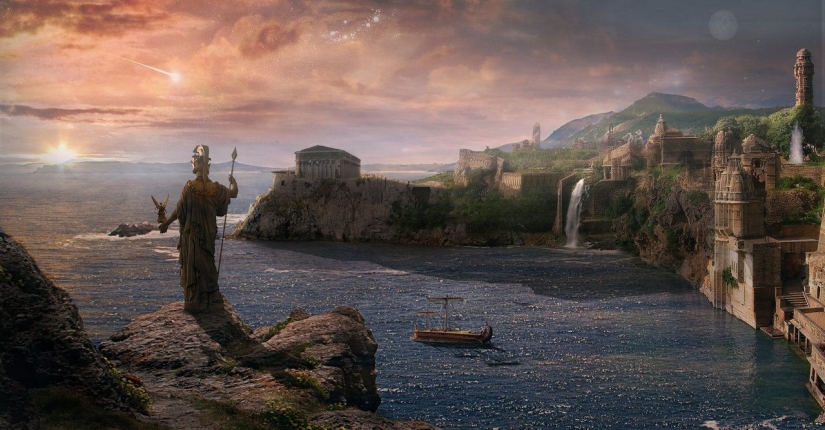
In 1334, French sailors reached the Canary Islands. A decade later, the Pope transferred the archipelago to the administration of Castile. It was then that the European conquest of the islands began, during which the European soldiers were very surprised by the huge physical strength of the locals.
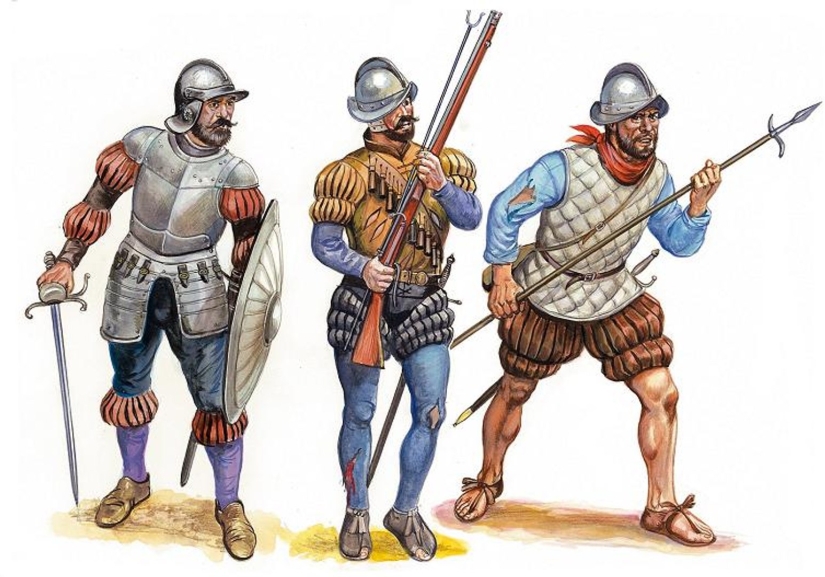 Spanish soldiers of the XV century
Spanish soldiers of the XV century
The most belligerent were the Guanches from the island of Tenerife. The Venetian sailor Alvise de Ca da Mosto wrote in 1495:
An important weapon of the Guancho were sharpened wooden spears, which they used both for striking and jumping. The defense of Tenerife was led by the leader Benejaro, who was able to drive the Spaniards from his land.
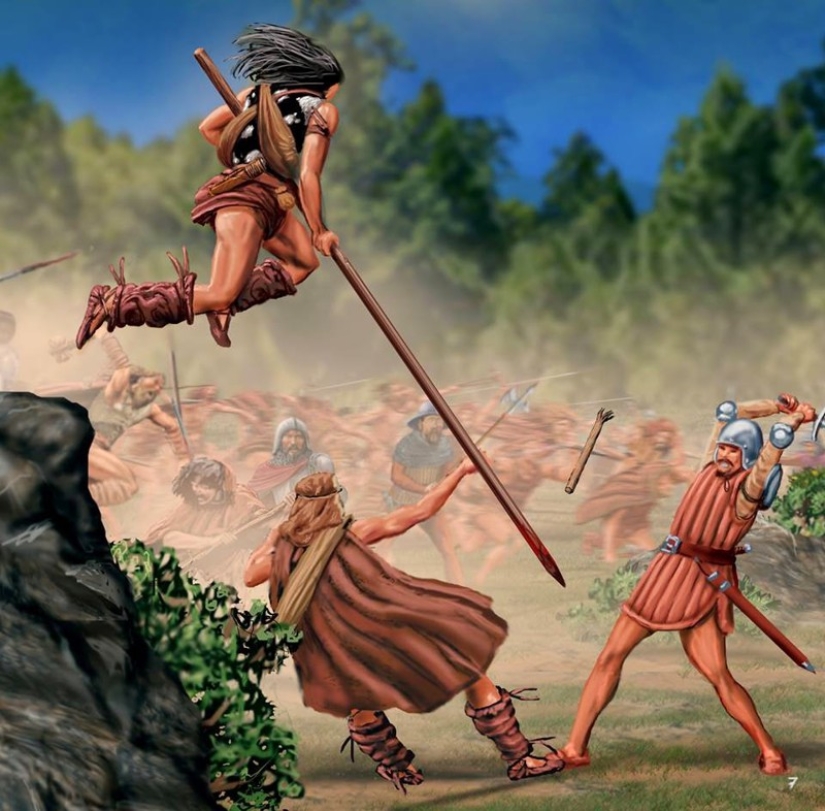 The battle of the Guanches with the Spanish conquerors
The battle of the Guanches with the Spanish conquerors
Immediately after the liberation, a plague epidemic broke out among the Guanches, which greatly weakened the islanders. Then the Europeans returned and defeated the enemy. On September 29, 1496, the commander Alonso de Lugo announced the complete conquest of the Canary Islands.
The ancient Greek philosopher Plato wrote that Atlantis, swallowed up by the sea in one day, was located to the west of the Pillars of Hercules directly opposite the Atlas Mountains. There was a catastrophe about 9500 years BC, and Herodotus, Diodorus Siculus and other historians of the past wrote about it. Today, Atlantis is a myth, but the geographical coordinates determined by Plato inspire the supporters of the existence of an ancient civilization with hope for its early discovery.
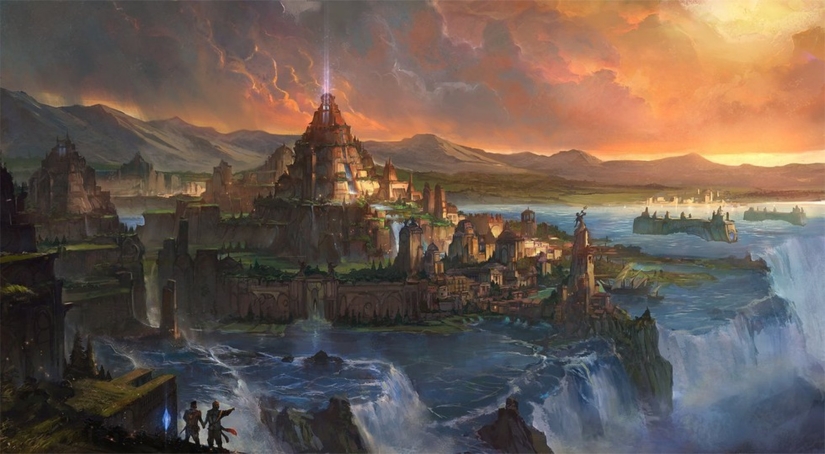 On the modern map, the Pillars of Hercules are the Strait of Gibraltar separating Africa and Europe, and just south of the Atlas Mountains are the Canary Islands, which many consider to be fragments of the continent of Atlantis. Confirm the theory and the mysterious people, even in The Middle Ages, who inhabited these patches of land in the middle of the ocean.
On the modern map, the Pillars of Hercules are the Strait of Gibraltar separating Africa and Europe, and just south of the Atlas Mountains are the Canary Islands, which many consider to be fragments of the continent of Atlantis. Confirm the theory and the mysterious people, even in The Middle Ages, who inhabited these patches of land in the middle of the ocean.
The indigenous inhabitants of the Canary Archipelago are the only island people in the world who did not know how to swim on the sea and did not even know the very concept of navigation. The inhabitants of the neighboring islands lived in isolation and had different levels of social development. Although they could get to each other by swimming.
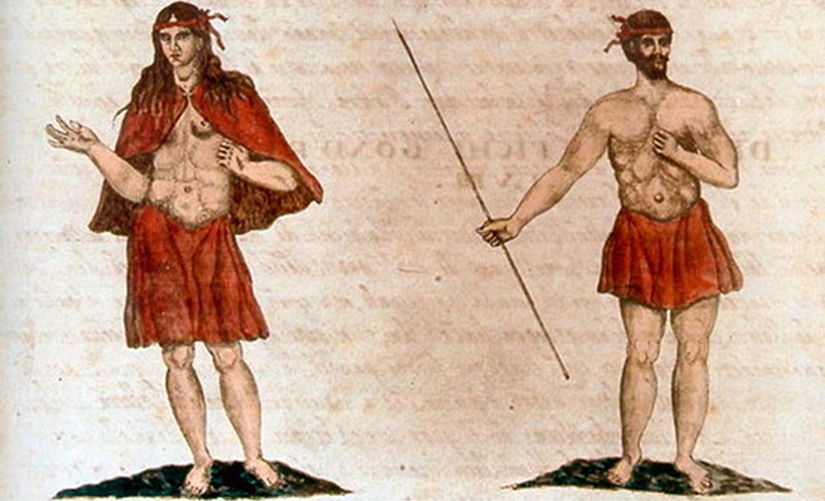 Medieval image of the men of the Guanchi tribe
Medieval image of the men of the Guanchi tribe
The Guanches from Tenerife were considered the most organized. The Canarians did not have boats, but there were goats, dogs, pigs. The African coast is 100 kilometers away, and Europe is 1300 kilometers away and how they got to the islands is unknown.
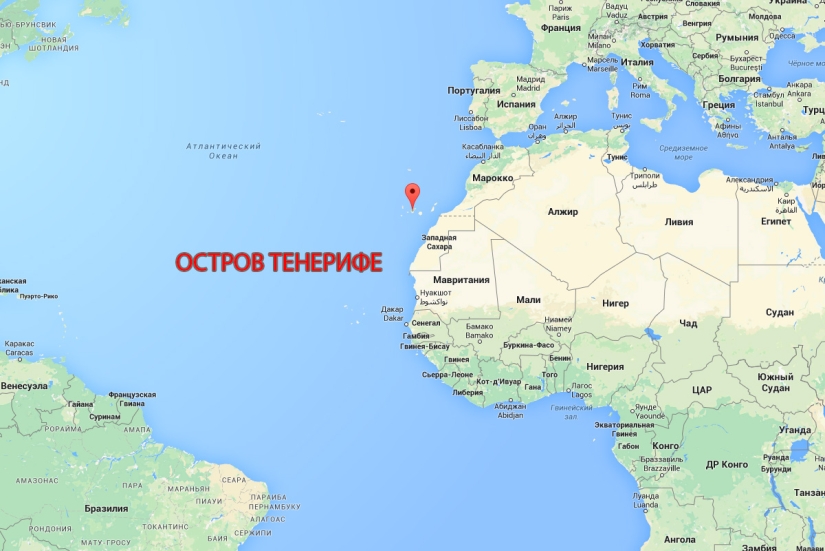
The Guanches believed that in the distant past their ancestors were great, worshipped the Sun and survived a sea disaster. In their view, the ocean has become a hostile force, which is dangerous to contact. The inhabitants of the archipelago were sure that they were the only survivors in the world and were waiting for the arrival of God, who, according to legends, would soon take them to heaven. A clear Analogy with Atlantis flooded by the ocean.
The Europeans were also struck by the speech of the white natives. Being on different islands, they transmitted information to each other with the help of a special whistle. Recorded information about communication by whistling at a distance of 15 kilometers. Being close, they communicated, almost without a sound moving their lips and gestures. One of the conquerors of the island, the French knight Jean de Betancourt, wrote in his diary:
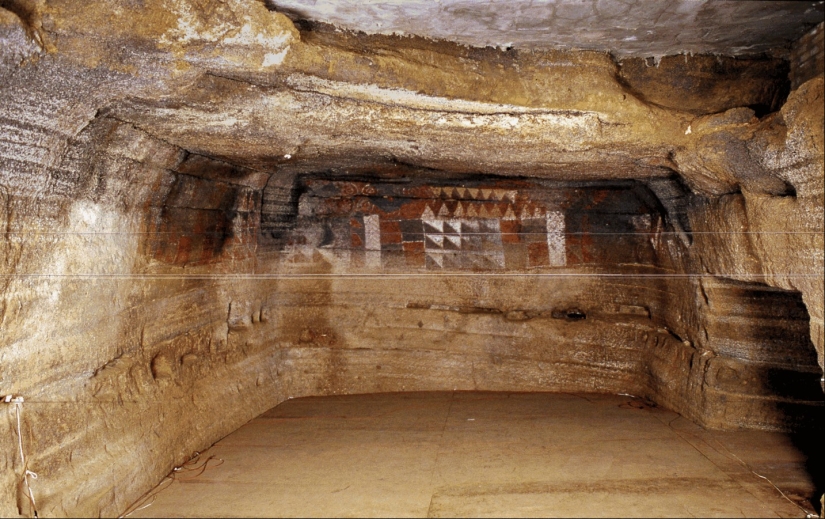 La Cue Pintada Cave-the home of the chief of the Guanche tribe
La Cue Pintada Cave-the home of the chief of the Guanche tribe
Among modern islanders, the whistle of the guanches is still alive today. However, it is no longer used for communication, but for the entertainment of tourists.
The fact that the Guanches and other tribes of the archipelago are indigenous is also indicated by their anthropological type. All of them belonged to the European mechtoid subrace, which in prehistoric times inhabited the North of Africa. They were distinguished by a lean and muscular body, broad shoulders and long limbs.
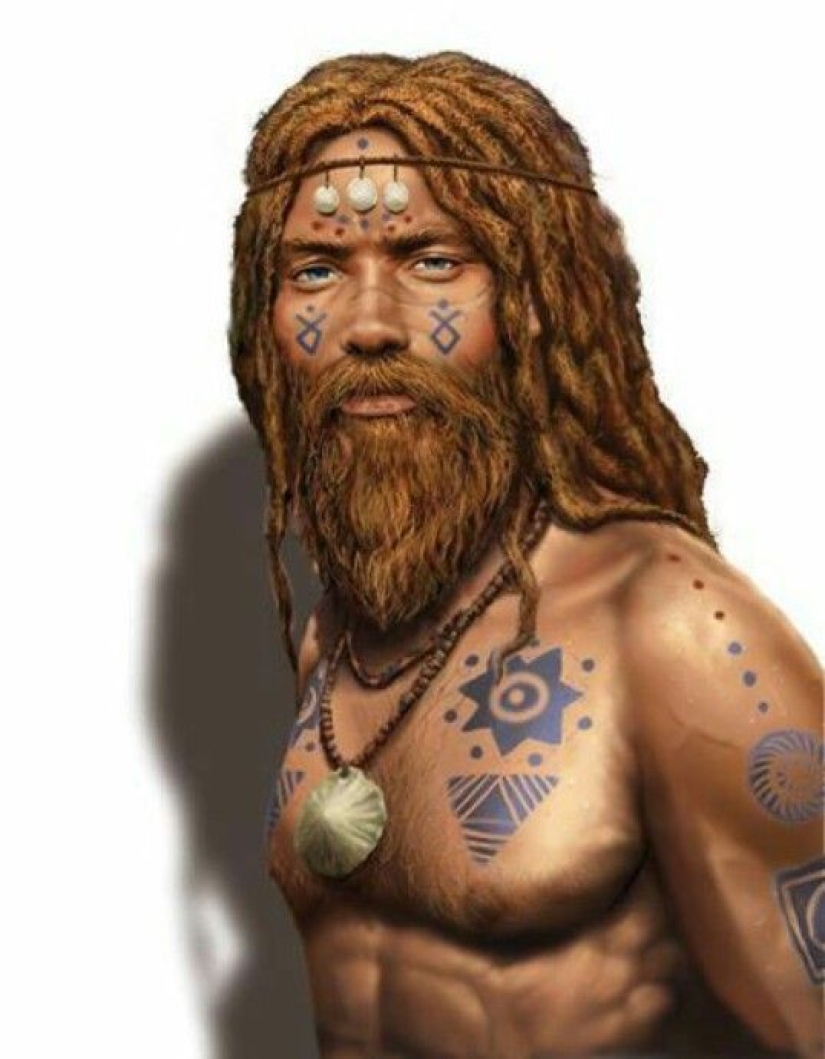
Modern reconstruction of the indigenous Canarian
They had a square chin, deep-set eyes, a nose with a large bridge. The Mechtoids were assimilated by the Mediterranean race back in the Neolithic, which began 9500 years ago.
 French football player and coach Zinadine Zidane, Kabila by origin
French football player and coach Zinadine Zidane, Kabila by origin
The genes of the mechtoids are carried by representatives of the Berber Kabyle people living in northern Algeria.
In the south-east of the island of Tenerife, in the town of Guimar, six step pyramids were discovered, which are similar to their South American counterparts. The structures were studied in detail by the Norwegian researcher Thor Heyerdahl. He found out that the pyramids are built from pre-processed blocks of volcanic rock. Climbing the highest of the pyramids, you can watch a double sunset. The sun sets behind the top of the hill, comes out again and only then finally goes beyond the horizon.
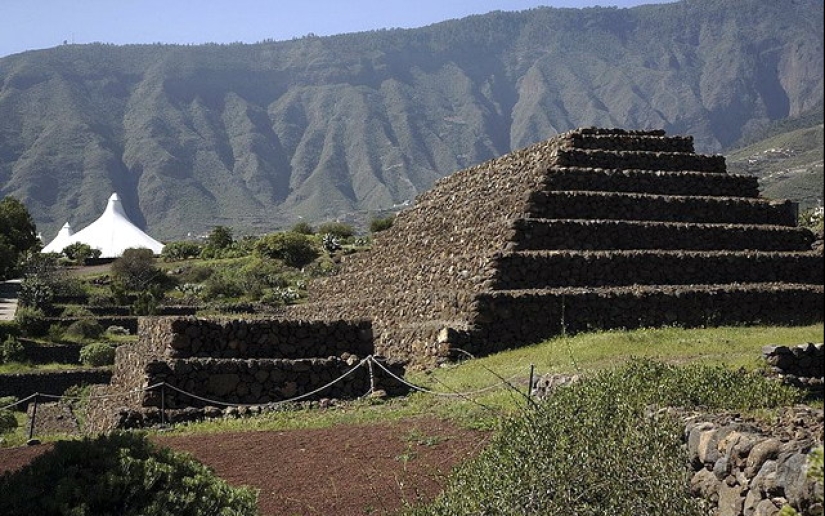
Canary Pyramids
Each building on the west side has a staircase, which at the winter equinox indicates the place of sunrise. Heyerdahl failed to find out the exact age of the pyramids. The fact that there were megalithic structures on the island was written by the Carthaginian navigator Ganon, but he claimed that he did not see people around them.
Like the ancient Egyptians, the islanders mummified the bodies of the dead. However, in the Canary Islands, people engaged in mummification were despised. It is interesting that the bodies on Earth were traditionally mummified by only three peoples — the Incas, Egyptians and Canarians.
The Canarians also left behind numerous inscriptions, which cannot be deciphered. Spanish researcher Dr. Sanchez studied the writing of the island of Hierro, who identified 373 icons divided into four groups.
1. Spirals, furrows, rounded lines similar to the ancient writing of Western Europe, Scandinavia, and the Sahara.
2. Parallel horizontal lines intersected by verticals, semi-spirals and crosses, similar to graffiti found in the Italian valleys of Le Meravillier and Fontanalba
3. The third is alphabetic signs, completely similar to the writing of ancient Carthage.
4. The icons are almost similar to the written signs of Crete and petroglyphs of the Upper Egyptian Kingdom.
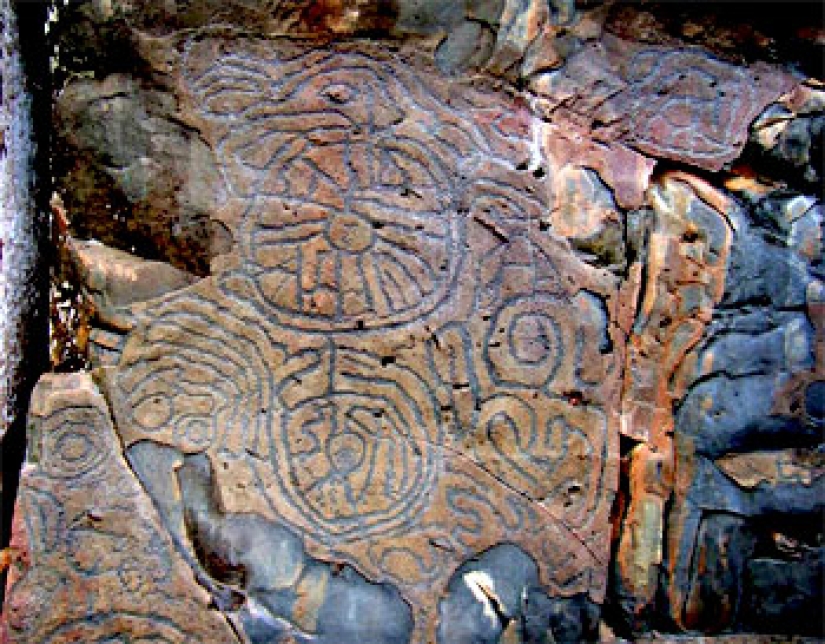
Patterns on the island of Hierro
When Europeans arrived on the islands, the Canarians were in the Stone Age and no longer had writing skills. Perhaps some of the signs were made by the ancestors of the islanders, their descendants degraded and the meaning of the symbols was forgotten. It is interesting that the patterns and letters are carved with metal tools, which the natives did not have.
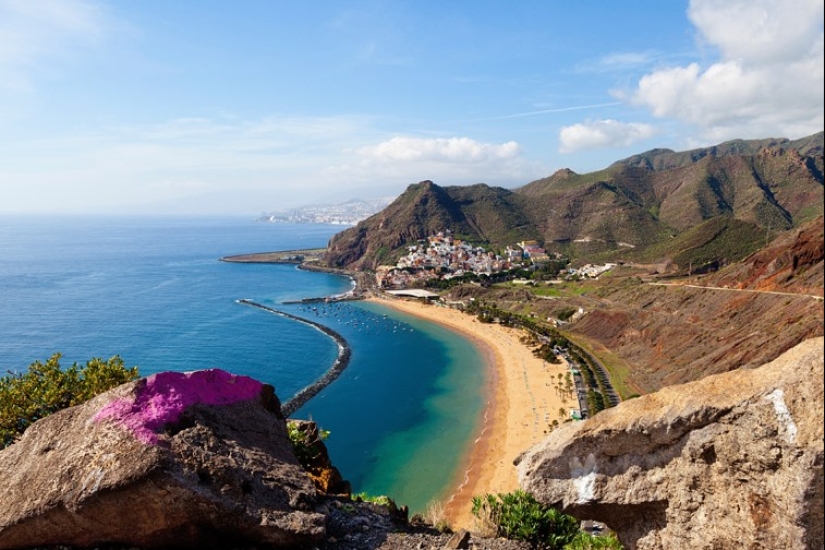
Today, the island of Tenerife and the entire Canary Archipelago is a popular resort region
The language of the islanders fell out of use in the The Middle Ages, and the few surviving indigenous people disappeared among the aliens. However, even today there are tall, fair-haired people among the Canarians who carry the genes of their distant ancestors. The brave people have disappeared, but their secrets remain and are waiting for a solution.
Keywords: Spain | Canary Islands | Myth
Post News ArticleRecent articles

Keishi Kuraibe is a Japanese freelance artist and illustrator who creates his works on the iPad. He loves heavy metal and folklore, ...

Our body is something that is always with us. Nevertheless, if you think about it, this is a unique world of mysteries and unusual ...
Related articles

Many of us are familiar with such actresses as Salma Hayek, Jennifer Lopez, Penelope Cruz. Seductive and hot, they attracted the ...

In 1957, the picture, called " The Kiss of Death "("Il Bacio della Morte"), flew around the world. In the photo, actress Linda ...

Among all the heroes of Slavic mythology, the cat Bayun can be considered the most mysterious. He is found infrequently in fairy ...

With the advent of gadgets in our lives, a lot has changed, including the load on the body. After all, sitting in front of a ...